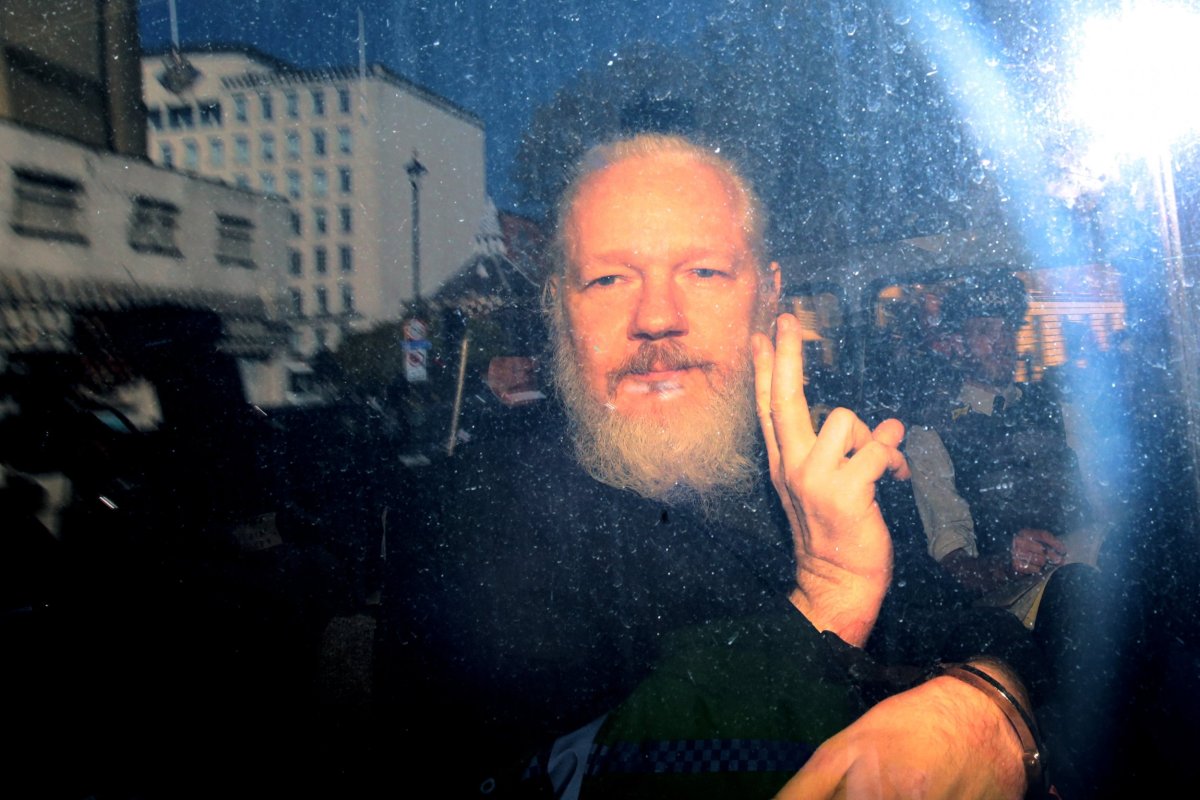Ecuador's president, Lenín Moreno, who on Thursday withdrew asylum status for Julian Assange, described the WikiLeaks founder as a "brat" and a "thorn" in the South American nation's side.
Painting a picture of Assange as ill-mannered, as someone who took Ecuador's hospitality taken for granted, during a speech on Thursday, the president said, as reported by Bloomberg: "You can't arrive at a house that welcomes you warmly, that gives you food, and takes care of you, and start to denounce the owner of the house. We've removed the asylum for this spoiled brat and, fortunately, we've gotten rid of a thorn in our side.
"From now on we'll be more careful in giving asylum to people who are really worth it, and not miserable hackers whose only goal is to destabilize governments," Moreno said, according to The Associated Press, which described Moreno as "visibly flustered."
"We are tolerant, calm people but we're not stupid," The Syndey Morning Herald reported Moreno as saying.
In a video statement shared on Twitter following Assange's arrest, Moreno said: "Today, I announced that the discourteous and aggressive behavior of Mr. Julian Assange, the hostile and threatening declarations of its allied organization, against Ecuador, and especially the transgression of international treaties, have led the situation to a point where the asylum of Mr. Assange is unsustainable and no longer viable.
Ecuador decidió soberanamente retirar el asilo diplomático a Julian Assange por violar reiteradamente convenciones internacionales y protocolo de convivencia. #EcuadorSoberano pic.twitter.com/V02pvvtPY0
— Lenín Moreno (@Lenin) April 11, 2019
"For six years and 10 months, the Ecuadorian people have protected the human rights of Mr. Assange and have provided for his everyday needs at the facilities of our Embassy in London.
Referring to the administration of his predecessor, President Rafael Correa, who was in power when Assange sought asylum, Moreno continued: "When I became President of Ecuador, I inherited this situation and decided to adopt a protocol to set the daily life rules at the Embassy, which is the [least] anyone may expect from a guest hosted at his own house. Ecuador has fulfilled its obligations in the framework of international law."
Moreno accused Assange of mistreading guards, installing electronic and distortion equipment not allowed at the embassy, blocking security cameras of the Ecuadorian Mission in London, and using security files at the Embassy without permission.
Before his arrest, the 47-year-old Australian computer programmer had not left the relatively small Ecuadorian embassy in London's upmarket Knightsbridge area for almost seven years. Assange arrived at the building in mid-June 2012, posing as a motorbike courier. Ecuador accommodated Assange by turning an office into a bedroom, and provided access to a shared bathroom and a basic kitchen The Guardian reported.
Assange was avoiding extradition to Sweden after two women accused him of rape and sexual assault in 2010. He claimed the allegations were part of a veiled attempt by the U.S. to extradite him for publishing classified information on WikiLeaks.
Swedish prosecutors dropped the sexual assault investigation in 2017, but Assange was still wanted by British police for failing to surrender after a warrant was issued by Westminster Magistrates' Court on June 29, 2012.
On Thursday, officers from London's Metropolitan Police arrested him and he was found guilty of failing to surrender to court at Westminster Magistrates' Court.
Assange faces extradition to the U.S. on charges of one count of conspiracy to commit computer intrusion following the release of classified American intelligence documents. Assange's represenatives did not immediately respond to Newsweek's requset for comment.

Uncommon Knowledge
Newsweek is committed to challenging conventional wisdom and finding connections in the search for common ground.
Newsweek is committed to challenging conventional wisdom and finding connections in the search for common ground.
About the writer
Kashmira Gander is Deputy Science Editor at Newsweek. Her interests include health, gender, LGBTQIA+ issues, human rights, subcultures, music, and lifestyle. Her ... Read more
To read how Newsweek uses AI as a newsroom tool, Click here.








